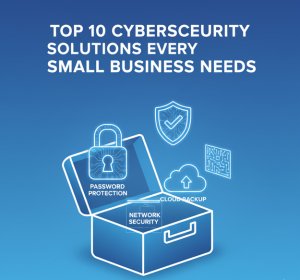Displaying items by tag: CyberAwareness
Continuous GPS Monitoring : Safety Boost or Privacy Risk?
A recent proposal from India , Continuous GPS monitoring slipped quietly into the headlines, and suddenly everyone from smartphone users to CEOs to privacy experts is paying attention.
Governments, telecom operators, businesses, and everyday consumers are increasingly talking about real-time location tracking and the conversations are heating up.
Let’s walk through what’s happening, why it matters, and how this small setting on your phone could have a big impact on your life.
DPDPA 2025 Rules Explained : The Ultimate Beginner-Friendly Guide
Data protection in India is offically Live now
The DPDPA Rules 2025 bring structure, deadlines, and accountability to the Act that was introduced earlier. For the first time, organisations have detailed instructions on consent, breach reporting, retention periods, children’s data, security safeguards, and more.
This breakdown will help your teams understand the Rules in simple terms, identify what applies to your organisation, and start planning for compliance right away.
Cloudflare Outage Explained: Why the Web Went Down
The Cloudflare Outage: Why the Internet Broke Yesterday And What It Means for All of Us Yesterday felt like one of those days where the entire internet decided to take a break.
Websites weren’t loading, apps froze halfway, login screens got stuck and payment pages In this deep-dive, let’s walk through what actually happened, why it matters,
how it affects businesses from startups to enterprises, and what you should take away from this incident.
I’ll break it down in a simple words.
Top 10 Cybersecurity Solutions Every Small Business Needs
You might think:“Why would hackers bother with my small business?I’m not a bank or a big tech company!”Here’s the plot twist:small businesses are actually the #1 target for cybercriminals today.
So today, we’re breaking down 10 cybersecurity solutions every small business should use explained in plain English, no tech dictionary required.Let’s lock those digital doors together.
Top 10 Internet Mistakes Everyone Makes (Even Smart People)
We all think we’re pretty good at using the internet.We scroll, shop, work, chat, and binge-watch like pros .But here’s the thing - the same “I know what I’m doing” confidence is what hackers love.Because that’s exactly when we stop paying attention.So today, let’s walk through the Top 10 Internet Mistakes that even smart people make every single day
Mobile security is no longer an afterthought—it’s a frontline battlefield. In 2024, cybercriminals have doubled down on smartphones as their weapon of choice, and Android devices are bearing the brunt of this shift. According to DigiAlert’s analysis of recent threat intelligence, Android dropper apps—malicious applications disguised as legitimate tools—have emerged as the primary delivery mechanism for SMS-based malware.
New UNC6384 Campaign Deploys PlugX via Captive Portal Attacks – Is Your Network Secure?
When you connect to a public Wi-Fi network, what’s the first thing you see?
Usually, a captive portal that login or “Agree to Terms & Conditions” page you click before getting access. For most people, it’s a routine step. But what if that portal wasn’t a harmless gateway, but instead a weaponized tool used by cybercriminals to infect your device?
That’s exactly what’s happening in a sophisticated cyber campaign launched by UNC6384, a threat actor now under global watch. By exploiting captive portals, UNC6384 is distributing the notorious PlugX malware, a remote access trojan capable of data theft, persistence, and further compromise.
Malicious Go Module Discovered Posing as SSH Brute-Forcer – Why Supply Chain Attacks Demand Urgent Attention
In today’s fast-moving digital world, software supply chains have become both a cornerstone of innovation and a prime target for attackers. A recent discovery reported by The Hacker News highlights a particularly troubling case: a malicious Go module named “golang.org/x/ssh” was found imitating the legitimate SSH library to deliver backdoor access.
New Pre-Auth Exploit Chains Discovered in Popular Platforms – Is Your Organization at Risk?
In the ever-evolving world of cybersecurity, every year introduces new attack methods, more sophisticated adversaries, and more critical vulnerabilities. But among the most concerning trends emerging today are pre-authentication exploit chains—a class of attacks that can allow cybercriminals to completely bypass login mechanisms and gain unauthorized access to critical systems.
Did you know that over 4.95 billion people worldwide—about 62.3% of the global population—actively use internet browsers every day? Browsers have become the entry point to nearly every digital interaction we perform—whether it’s accessing work tools, online banking, or managing personal accounts. Yet, despite their importance, a large percentage of users remain unaware of the silent threats lurking within browser extensions.
















